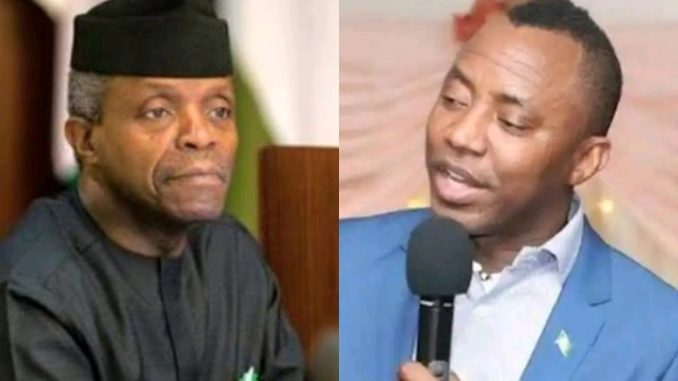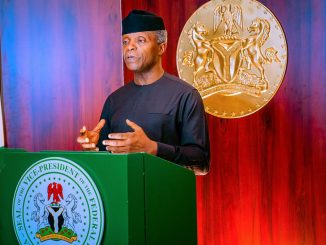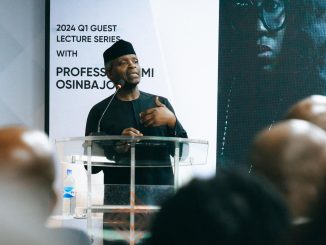
Marvellous Nyang
September 1, 2025
Former Vice President Prof. Yemi Osinbajo once clashed with the Department of State Services (DSS) over the continued detention of activist and publisher of Sahara Reporters, Omoyele Sowore, despite a valid court order for his release.
The revelation is contained in a new book by journalist and human rights advocate, Richard Akinnola, titled I Write What I Like.
The author, who was actively involved in the campaign for Sowore’s release in 2019, detailed how Osinbajo intervened behind the scenes to press for compliance with the court order.
According to Akinnola, Osinbajo expressed strong displeasure with the DSS for disobeying judicial directives and warned that the continued detention of the activist was a clear violation of the rule of law.
ALSO READ: How to persuade people to change their behaviour
He reportedly reminded the security agency that such actions could damage the administration’s public image and his own professional reputation as a lawyer and Senior Advocate of Nigeria.
The book recounts that Osinbajo’s insistence led to a heated exchange with senior DSS officials, who allegedly told him that “there could not be two presidents.”
The statement was seen as a veiled reference to Osinbajo’s decision in 2018, while serving as Acting President, to sack the then DSS Director-General, Lawal Daura, after the invasion of the National Assembly.
Despite the tension, the Vice President’s intervention reportedly yielded results, as Sowore was eventually released shortly after Akinnola’s visit to Osinbajo’s office.
The author noted that the episode demonstrated Osinbajo’s commitment to the rule of law and his quiet but firm approach to resolving sensitive national issues.
The 198-page book, I Write What I Like, published recently in Lagos, is a compilation of Akinnola’s reflections and writings from 2017 to 2025, featuring accounts of major political events and the roles played by key national figures, including Osinbajo’s interventions in cases involving detained citizens such as Sheikh Ibrahim El-Zakzaky.
Through the revelation, Akinnola portrays Osinbajo as a leader who, even within the constraints of high office, was willing to challenge institutional excesses to defend justice and constitutional order.




